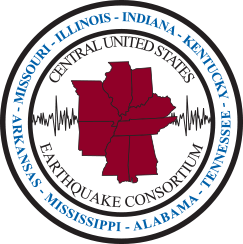In partnership with the U.S. Department of Homeland Security’s Science and Technology Directorate (DHS S&T) and G&H International Services, Inc. (G&H), CUSEC has been supporting a project to operationalize FEMA’s Community Lifelines construct through a tool known as the Community Lifelines Status System (CLSS). The CLSS is being developed as a no-cost tool for states, localities, tribal nations, and territories (SLTT) nationwide to assess and report on their own lifelines, which are, as FEMA describes, “the most fundamental services in the community that, when stabilized, enable all other aspects of society to function.”


CLSS is a no-cost tool for states, localities, tribal nations, and territories.
In development since 2022, the CLSS is now available to SLTT and other emergency management agencies for testing. Brian Blake, CUSEC’s Executive Director, said of the CLSS project:
This project provides a great opportunity for CUSEC to help states, local governments, and others to quickly create a community impact assessment on their lifelines and easily report this information through the CLSS tool.”

G&H is developing the CLSS prototype which is hosted on CUSEC’s servers. CUSEC is supporting outreach and end-user support on the tool, not only to their Member and Associate States, but nationwide. Over 70 jurisdictions in 28 states at the local and state levels have already begun pilot testing and incorporating the tool into their own exercises, as well as attending virtual demonstration workshops. Within the CLSS, users are able to control and manage sharing capabilities and data-driven reporting.
G&H Senior Vice-President for Strategic Partnerships, Mike Dossett, said of the tool:
The CLSS expands on FEMA’s Community Lifelines concept and gives emergency managers a simple tool to conduct impact assessments and generate reports for their own use and to share with other agencies. The EMA has the ability to manage and customize their indicators in the tool to determine if that lifeline has minimal, moderate, or significant impacts and be able to share that information at a glance. It’s a tremendous opportunity for EOCs at all levels.”

More information
- Jurisdictions nationwide are eligible to participate. Emergency Managers for states, local governments, tribal nations and territories (SLTT), as well as GIS professionals, NGOs, utility companies, private sector participants, and others in incident preparation and response can contact us at clss@cusec.org for more information about participating in workshops, exercises, and testing.
- Additionally, agencies can schedule an hour-long demonstration workshop directly by going to GHI’s workshop booking page.
- Regularly updated information is provided on the CLSS Hubsite.
- Interested persons can also subscribe to the CLSS Newsletter.
- DHS S&T Fact Sheet on the CLSS tool
